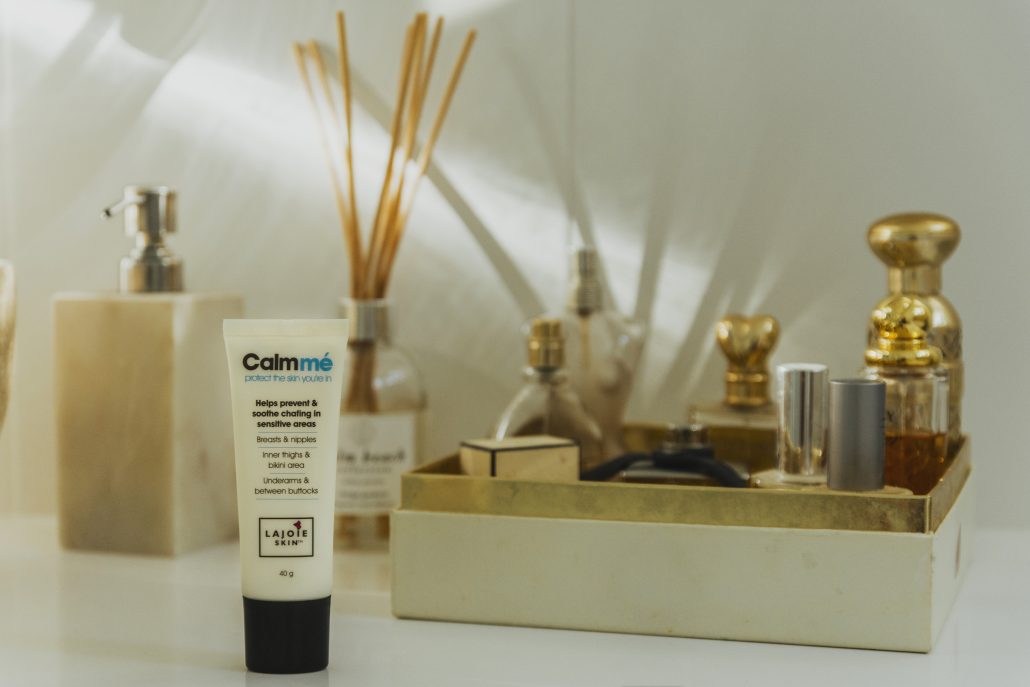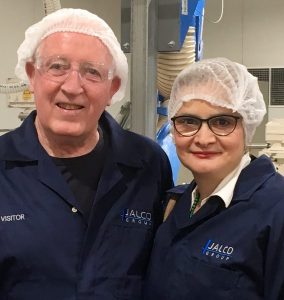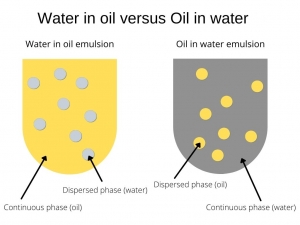Voice from the lab
We are cosmetic chemists with over 80 years combined product development experience both nationally and internationally. Within this time, we’ve heard it all. From the very good to the very shady.
Most of the time, we try to keep our opinions to ourselves. But, every so often we do like to come out from our labs and share some of our experience with you. More specifically, we would like to help clear up a lot of the misinformation out there, false advice or opinions that are not science based.
Today, trying to decipher what is real from fake is very difficult. Further, false and misleading claims can make life more challenging and this does have a direct impact on skin health.
Fear mongering maybe great to sell product, but that is not who we choose to be. Conflict and online bickering make be great for clickbait and help raise your online profile, but that can’t be good for everyone’s mental health.
So if we don’t have anything nice to say, we choose to say nothing. Having said that we are always happy to debunk myths and false statements, respectfully.
Let’s get social
If there are any questions that you would like answered or anything else that you would like to know, please get in touch with us at contact@lajoieskin.com.
We cosmetic chemist are quite social and love to have a chat, so catch up with us on instagram or facebook.
Why does skin chafe?
The natural curves of our body may need protection from being chafed. Both exercise and skin rubbing against skin or clothing can cause chafing.
Hormonal imbalances during puberty, pregnancy or menopause can cause excessive sweating which can cause chafing. Stress can cause excessive sweating which can cause chafing.
Our sensitive skin needs that extra love and care once it becomes chafed.
Chafe prone skin is not an issue due to specific body frames, body weight or skin colour. Similarly to other predispositions, some people just have chafe prone skin.
Calmmé helps prevent and soothe chafing in sensitive areas.
Why wearing shorts or tights underneath a dress is not the answer for some chafe prone skin?
Some people wear shorts and tights to help prevent thigh friction. Unfortunately, for some women shorts or tights underneath a dress in order to stop chafing is not an option.
Natural fibers allow your skin to breathe
It is recommended by Gynaecologists that women wear underwear made from natural fibers. For women who suffer from chronic thrush allowing your skin to breathe is essential. Therefore nylon or other manmade fibres near their bikini line should not be worn as this can breed infection.
Long-lasting invisible barrier cream
We recommend Calmmé cream as an alternative to wearing shorts or tights to stop thigh friction. Calmmé feels like you are wearing a silky body. A long lasting soothing barrier is formed, so no need to wear anything else underneath your skirt or dress.
Antiperspirants should not be used in the attempt to prevent chafing.
Antiperspirants have been used in the attempt to prevent chafing. The thinking behind this practice, is that an antiperspirant will stop you from sweating. If sweat glands are blocked then chafing or a rash will not occur.
Antiperspirants are for your armpits!
Firstly, antiperspirants are formulated for armpits only. Cosmetic chemists did not formulate antiperspirants with the intention for them to be used in sensitive areas of our body. In the event that the chafing has torn the skin, the active ingredient, aluminium chlorohydrate in the antiperspirant may burn the skin, hence why it is not meant to be used on open wounds. A warning is clearly highlighted in those products that contain aluminium chlorohydrate:
“Do not apply on irritated or damaged skin.”
”Do not apply on broken or sore skin.”
If there is broken skin an antiperspirant can increase the chances of skin irritation and thus skin infection.
Chafing prevention needs to be both safe and sustainable in the long term.
Why aluminium chlorohydrate is not used in our chafing cream?
Cosmetic chemists use aluminium chlorohydrate as the active ingredient in antiperspirants. Aluminium chlorohydrate plays the major role in blocking sweat glands, so that water will not be released from the body.
Although sweating occurs all over our body, the main sweat glands are in the underarm pits and the groin. In order to avoid thigh chafing, some ‘anti-chafe’ products contains aluminium chlorohydrate so that the thighs stop sweating. But the major sweat glands are in your groin. Therefore, how can you prevent the sweat from running from your groin down to your thighs to stop them from chafing?
Hence, at LAJOIE SKIN our approach to help prevent chafing, is not to block pores and stop the natural process of sweating. We work with the natural process and reduce friction by creating a long-lasting protective barrier.
Why no fragrance and essential oil?

Fragrance is one of our greatest passions. Having said that, our product Calmmé does not contain fragrance nor any essential oils.
In order for us to reduce the chances of skin sensitivities, we have chosen to not include any fragrance or essential oil in our formula. Unfortunately, fragrance and essential oils can be irritants for those with sensitive skin.
Chafe prone skin is sensitive skin
Chafe prone skin is sensitive and often the skin can crack or split. Therefore, we do not want essential oils or fragrance penetrating the skin wall, as this can further inflame the skin.
Secondly, you really don’t want your chafe cream to clash with your favourite perfume.
Calmmé is a functional product. A functional product which means that its primary role, is to do a specific job and that is to either help protect or soothe your skin.
The real reason why parabens and paraben derivatives are not used in our product.
Parabens and Paraben derivatives are used by cosmetic chemists in products as a cheap form of preservative. Preservatives are important in cosmetics as they protect consumers from harmful pathogens that would otherwise invade the creams and products people use on a daily basis. Without preservatives all cosmetics would have a very short shelf life and would, in the most part, have to be stored in a fridge. Parabens and paraben derivatives, provide value for money to you the customer.
Parabens have been receiving bad press since the late 70s. The potential problem with parabens and their derivatives is they may leak into the body through the skin’s surface.
Having said that, the EU and FDA regulations, parabens in their current form still consider them to be safe to use, since cosmetic products only use a very small concentration of these ingredients in their formulas.
The reasons why palm oil or palm oil derivatives are not used in our product.
Palm oil and palm oil derivatives are cheap ingredients and therefore they are value for money for the manufacturer and the customer. However, palm oil and palm oil derivatives are costly to our environment and especially to the habitat of Orangutan. The palm oil industry is linked to major issues such as deforestation, habitat degradation, climate change, animal cruelty and indigenous rights abuses in the countries in which it is produced. Here at LAJOIE SKIN our cosmetic chemists do not use palm oil or palm oil derivatives.
Having said that, there is a current move to produce palm oil from sustainable sources. But at this stage it is far too complicated for the consumer to guarantee which palm oil and its derivatives is sourced both sustainable and ethically.
Why plastic tube packaging?
Less is more
LAJOIE SKIN is committed to sustainability in more than just environmental parameters, but also in the sense that products need to last and not get wasted. In this case we have chosen plastic tube packaging, based on:
- Our tube is designed to reduce cross contamination between your skin and the product. Bacteria is easily transferred from your skin and back into the product via its packaging. When a product is dispensed from a tube the chances of contamination are reduced. Conversely, when a stick is used to apply product to your skin, ‘bits of your skin’ are left behind on the surface of the stick and this increases the chances of bacterial contamination.
- You have better control of how much product to use and so there is less wastage.
- Easier to apply on areas were the skin is soft and not firm.
- Compact and therefore easily carried and stored in luggage.
- As the formulae is highly concentrated, a little goes a long way. Minimal packaging is required and it is light in weight.
Customer benefits
In order to achieve these benefits for our customers, we have had to use a mixture of different plastics.
Polypropylene (PP) (5) is used on the lid which is not recycled by the majority of councils in Australia.
High density polyethylene (HDPE) (2) is used on the tip of the tube, which should only be recycled if it is thoroughly clean and all of the actual product is removed.
Low density polyethylene (LDPE) (4) is used on the body of the tube. which should only be recycled if it is thoroughly clean and all of the actual product is removed.
Calmmé a brand developed by qualified and experienced scientists with a passion for sustainability. All ingredients are both ethically and sustainably sourced, cruelty free.
Is talcum powder the answer to chafing?
We say no way, talcum powder is not the long-term solution to chafing. Apart from the fact that talcum powder is messy and provides a short term barrier, it has been linked to cancer.
Having said that, it is not clear if consumer products containing talcum powder increase the risk of cancer. Studies of personal use of talcum powder have had mixed results, although there is some suggestion of a possible increase in ovarian cancer risk. There is very little evidence at this time that any other forms of cancer are linked with consumer use of talcum powder.
Err on the side of caution
Until more information is available, people concerned about using talcum powder may want to avoid or limit their use of consumer products that contain it. Hence, we are being extra cautious and have not included talcum powder in our formulae.
Does Vaseline stop chafing?
Vaseline is a petroleum based product that provides a cheap alternative to creating a barrier. However this barrier:
- Is short lived as it does not last for too long.
- Makes a mess of your valuable clothing and surroundings.
- Does not contain ingredients that will help soothe your skin.
- Feels slimy and oily to the skin.
Calmmé is a long lasting barrier cream.
Natural and organic claims.
Is it natural? This is one of the most commonly asked questions by women with reference to skincare and cosmetic products.
For details please go to our blog, Is it natural? Facts behind ‘natural’ product claims.
Our commitment as cosmetic chemists
No false advertising.
No false claims.
No marketing hype.
Just the science based facts.
What is a water in oil emulsion?
What is a water in oil emulsion?
Some examples of water in oil emulsions include, butter, margarine, makeup and good quality water resistant sunscreens.
Water in oil emulsion have a high oil concentration and minimal water. They are more challenging to formulate than oil in water emulsions. Oil in water emulsions are the basis of water-based products, like standard creams like moisturisers. Water in oil emulsions are particular favoured for those products that are formulated for dry or sensitive skin.
The active ingredients in Calmmé are in present the oil phase and they are readily available in the external phase. The product contains a minimal amount of water and therefore leaves the oil based actives to perform at their optimum. The actives are present in the external phase and therefore are able to provide a film on the skin. This fine film creates are barrier to help slip and provides a silky feel. The fine barrier also helps reduce transepidermal water loss.



